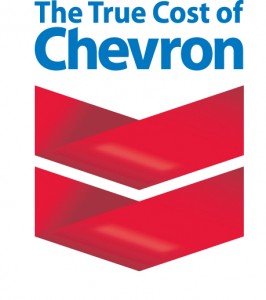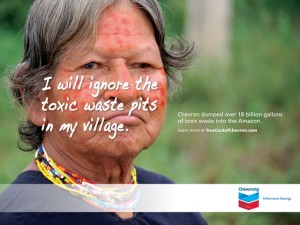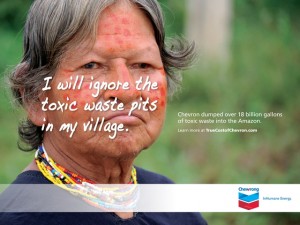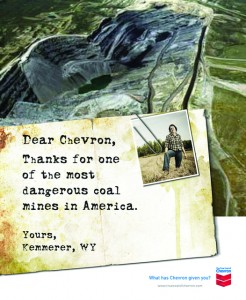 New York City-based plaintiffs’ lawyer Steven Donziger is requesting an oral argument on Chevron Corp.’s recent motion for a separate and expedited trial.
New York City-based plaintiffs’ lawyer Steven Donziger is requesting an oral argument on Chevron Corp.’s recent motion for a separate and expedited trial.
Chevron, in a memorandum filed March 14, is seeking bifurcation on its request for a declaratory judgment that an Ecuadorian court’s multibillion-dollar judgment against it is “non-recognizable” and “unenforceable.”
The other trial would focus on the company’s racketeering claims against defendants Donziger; his Ecuadorian colleagues Pablo Fajardo and Luis Yanza; organizations the Amazon Defense Front and Selva Viva; and Stratus Consulting, a Boulder, Colo.-based consulting firm.
Chevron, in its 17-page memorandum, argued that bifurcation promotes the interests of “convenience” and “judicial efficiency,” and “expeditious resolution of the manner and order of trial is necessary to structure discovery and other pre-trial matters and to allow for prompt and orderly resolution of the case.”
Bifurcation and prompt resolution of the declaratory judgment claim is especially necessary, Chevron said, because representatives of the Lago Agrio plaintiffs “have made clear that they will not abide by this court’s preliminary injunction, vowing that they will ‘use all the relevant legal tools available in Ecuador and all over the world to accomplish enforcement of the judgment in whatever part of the world where it’s most convenient and where Chevron has assets.'”
Donziger, in his two-page request, says the court’s March 11 order to show cause indicated that Chevron’s motion would be submitted “without the need for any argument in open court, unless otherwise ordered.” Donziger said he is requesting such an order.
He submits that “oral argument is appropriate given the complexity of the issues presented by Chevron’s motion.”
In particular, Donziger’s counsel says they would like to address the decision by the Second Circuit Court of Appeals in Republic of Ecuador, et al., v. Chevron Corp., et al., and “any impact that decision may have on this case and, specifically, on Chevron’s request for bifurcation.”
The Second Circuit ruled Thursday that Chevron could proceed with its international arbitration dispute with Ecuador.
An Ecuadorian court, in a ruling last month, ordered the company to pay $8.6 billion for environmental damage caused to the country’s Amazon region by Chevron’s Texaco unit.
Karen Hinton, a spokeswoman for the Ecuadorians suing Chevron, said following the appeals court’s ruling last week that the decision was “a critically important milestone” for the plaintiffs “in their 18-year battle to hold Chevron accountable for the world’s worst oil-related disaster.”
“The Appellate Court found against Chevron on several key factual issues that undermine the company’s defenses both in Ecuador and potentially in various enforcement courts where it faces an $18 billion liability,” she said in a statement.
“First, the panel found that Chevron’s promises several years ago to a U.S. federal court that it would submit to Ecuadorian jurisdiction and pay damages are ‘enforceable’ against Chevron. Second, the panel found that Chevron is the same company as Texaco and therefore is responsible for any misconduct committed in Ecuador by Texaco, despite Chevron’s fallacious arguments to the contrary. Third, the panel found that the Lago Agrio litigation in Ecuador is the same as the original lawsuit filed in New York federal court in 1993, thereby nullifying Chevron’s argument that it is not bound by the Ecuador judgment because the cases are different.
“Finally, the panel expressly confirmed that the environmental claims of the Ecuador plaintiffs cannot be resolved via international arbitration where they are not a party — thereby striking a blow against Chevron’s public claim that arbitration protects it from enforcement of the Ecuador judgment,” Hinton said.
Donziger, in an accompanying 30-page memorandum also filed Monday, railed against Chevron.
He said that Chevron alleges his life work for the last 17 years “is a fraud and akin to organized crime.”
“Having gotten as much bang for its buck out of making these false and malicious allegations as it could possibly get, Chevron now wants to avoid actually having to prove any of its claims and to duck any discovery into its own pervasive wrongdoing,” Donziger wrote.
“Chevron instead wants to put the Republic of Ecuador on trial, because one of its courts had the temerity to issue a detailed, carefully-reason judgment condemning both Chevron’s environmental violations and its years of litigation misconduct undertaken to avoid liability for its environmental damage.”
Chevron alleges that Donziger and the other defendants are leading a fraudulent litigation and public relations campaign against the company, and filed a lawsuit against them last month under the Racketeer Influenced and Corrupt Organizations Act and other state and federal laws.
The company’s suit alleges that the defendants, and certain “non-party co-conspirators,” have used the Ecuador lawsuit to threaten Chevron, mislead U.S. government officials, and harass and intimidate Chevron employees — all to extort a financial settlement from the company.
Chevron, in its memo seeking bifurcation, suggested that the court could order trial of the non-fraud statutory bases under New York’s Recognition Act, C.P.L.R. 5304, and then resolve the fraud basis for non-recognition either as part of an additional, separate proceeding or as part of a consolidated trial with the RICO and state-law claims.
The company said bifurcation will streamline the proceedings “by narrowing the claims to be resolved in the first instance and eliminating certain purported defenses as irrelevant to their disposition.”
If the court decides to bifurcate, Chevron requested that it set a schedule that will result in resolution within the next three to six months.
Donziger says the three- to six-month timeframe proposed by the company does not provide him and the other defendants with nearly enough time, “especially given that Chevron has had a 15-month head start on discovery” and that there is a preliminary injunction in place protecting Chevron in the interim. –by Jessica M Karmasek
From Legal Newsline: Reach Jessica Karmasek by e-mail at jessica@legalnewsline.com.
This article was originally posted at: http://www.legalnewsline.com/news/231783-donziger-requests-argument-rails-against-chevron
Lead photo depicts Steven Donziger, left, and Joe Berlinger, director of the movie “Crude,” on the right.
* * *
Stay connected with the Global Exchange Energy Program:





